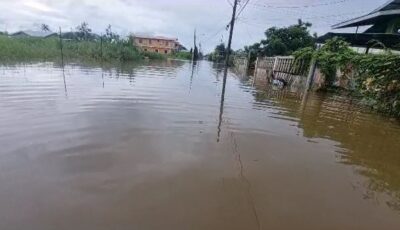Resurgence of the H1N1 Virus in Southern Asia

Dr. Fuad Khan
Member of Parliament for Barataria/San Juan
Recently, there has been a resurgence of the H1N1 virus, commonly referred to as Swine Flu, in India and other parts of Asia, which in the past month, has infected thousands and is suspected to have caused the deaths of dozens of persons in that region. While the virus has not yet entered our hemisphere, it is imperative that we be on alert, given the close connection that we share with those countries. Anyone traveling to, or returning from that area, should be aware of the potential risk that this contagion poses and should follow the following guidelines to prevent both acquiring and spreading of the disease:
1. Vaccination – this should be a priority for anyone traveling to the Asian continent to prevent contracting the virus;
2. Practice Good Hygine – Wash your hands with soap and water, especially after coughing and sneezing. Alcohol-based hand cleaners are also effective with a concentration of 60% to 95% ethanol or isopropanol.
3. Cover your Nose and Mouth when you Cough or Sneeze. Also avoid touching your eyes, nose, or mouth as most germs are spread in this way.
4. Monitor Yourself and Your Family for Symptoms – Like the seasonal flu, swine flu symptoms include fever (a temperature equal to or greater than 100 degrees Fahrenheit), cough, sore throat, runny nose, body aches, headache, and chills.
5. Stay home if you have flu or flu-like symptoms for at least 24 hours after you no longer have a fever. This should be determined without the use of fever reducing medications.
Groups identified during the global H1N1 pandemic of the past decade as being high risk, such as young adults and pregnant women, will probably remain at heightened risk during this recent outbreak. As such, it is crucial that we remain aware and educated of this virus to prevent affliction or transmission of this disease.
The Immigration department should also be placed on alert to conduct screening of anyone either entering or retuning to our shores from any country in which the H1N1 virus is currently being plagued with the contagion. There should also be preparations at our Medical Facilities to both vaccinate and combat this disease should it pose a threat to our citizens.
Though we have suffered casualties of this virus during the pandemic in 2009, under my guidance, the Ministry of Health took steps to ensure that our health facilities were fully equipped to treat with this disease should it ever pose a theat to our nation, and prevent any further loss of life. At this stage, there is no reason for panic, for as long those counter-measures are enforced, and we as a national community remain vigilant, for both ourselves and our neighbors, the citizens of this country can remain safe and protected from this virus.
Thank you.
Dr. Fuad Khan
Member of Parliament for Barataria/San Juan






